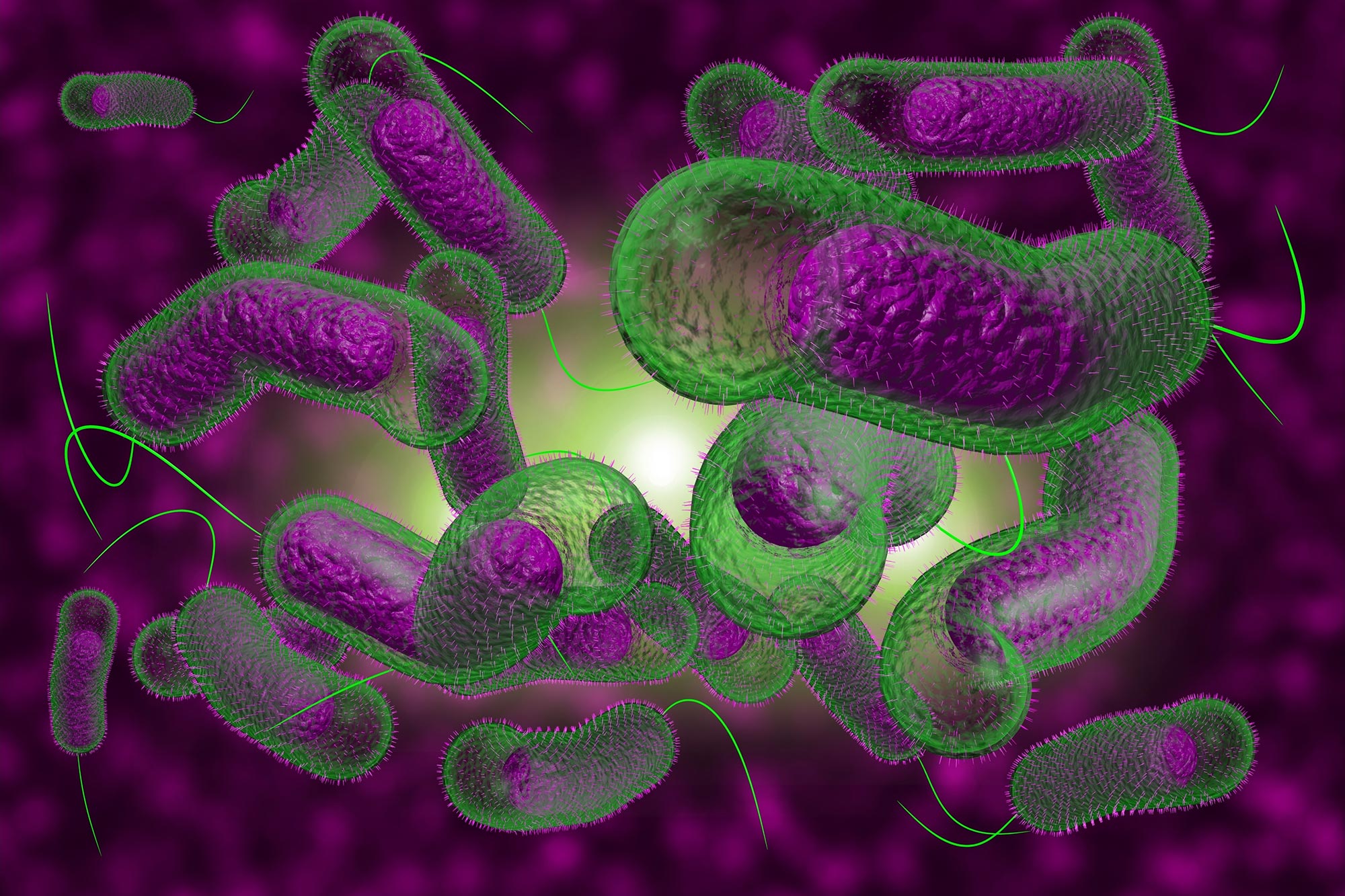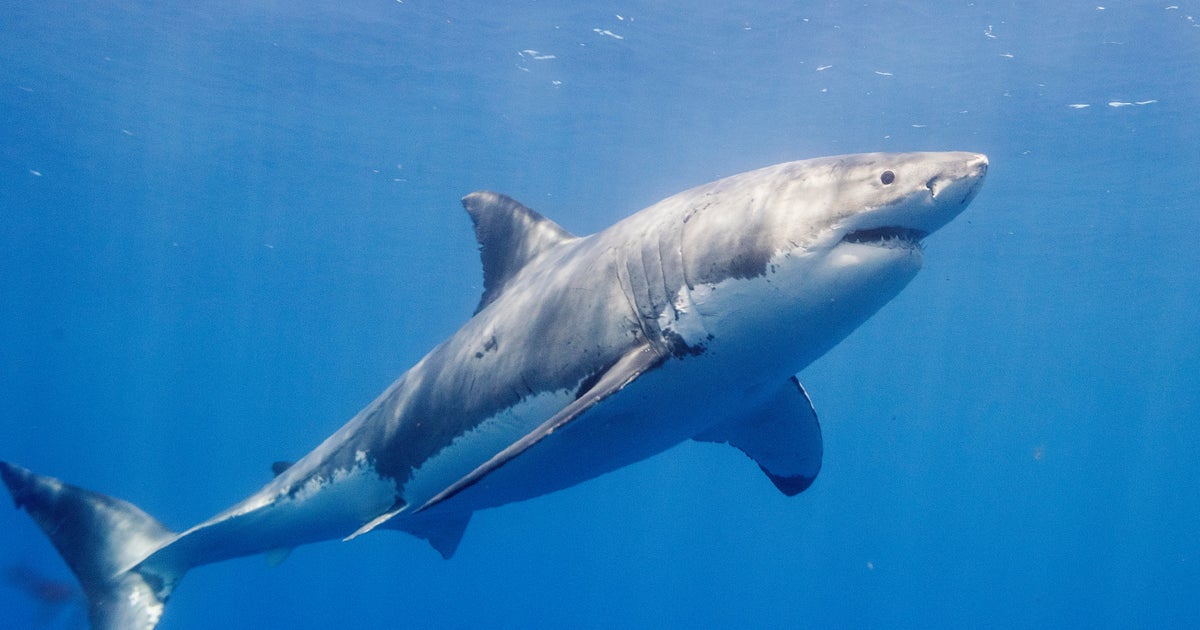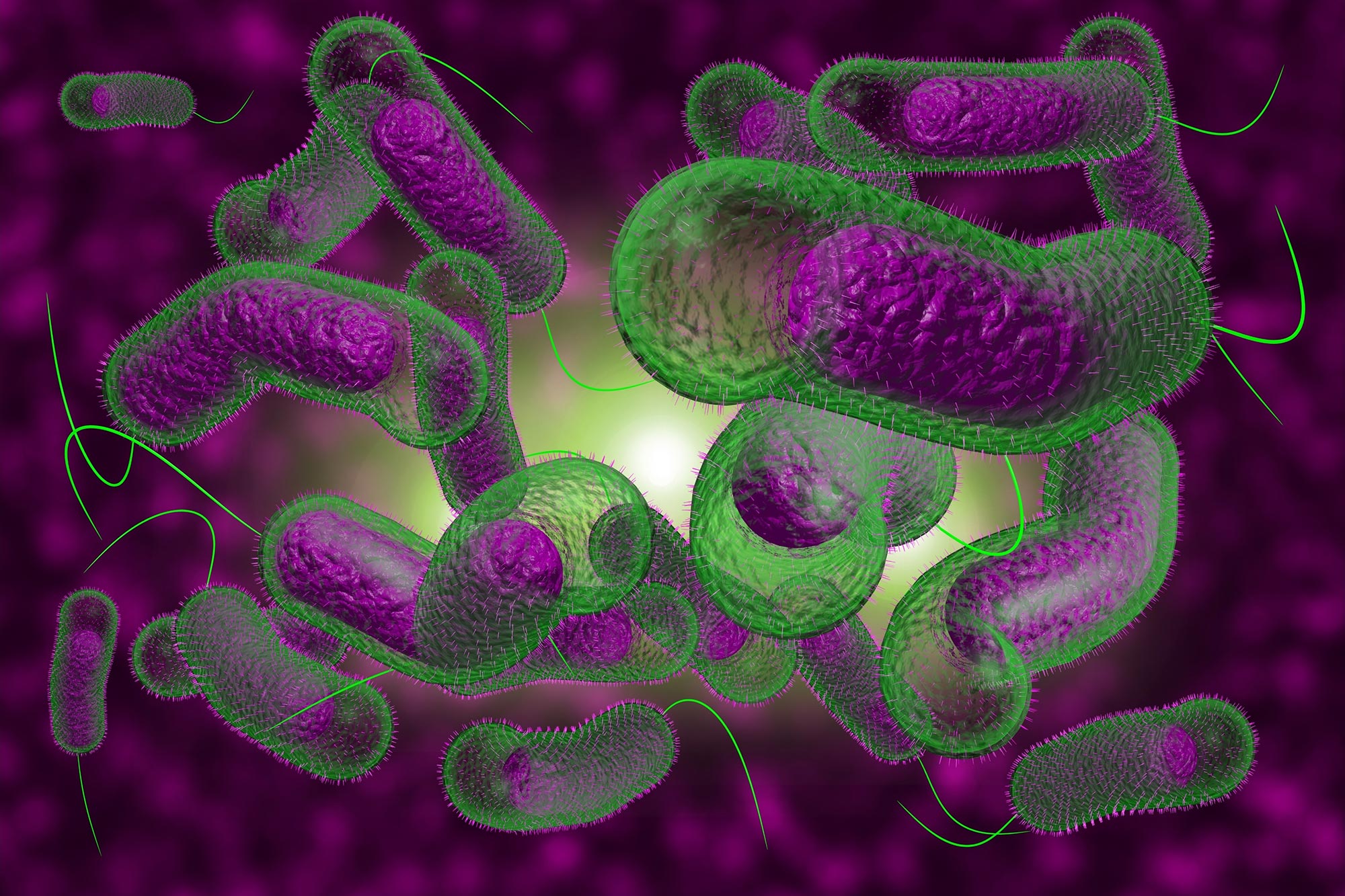
박테리아는 긴 실 모양의 부속물을 임시 팬 역할을 하는 나선형 모양으로 비틀어서 앞으로 나아갑니다.
버지니아 대학교 과학자들이 수십 년 동안 풀리지 않은 수수께끼를 풀었습니다.
의 연구원 버지니아 대학교 의과대학과 동료들은 대장균과 다른 박테리아가 어떻게 움직이는지에 대한 오랜 미스터리를 풀었습니다.
박테리아는 긴 실 모양의 끝을 나선형으로 비틀어서 앞으로 나아가는데, 이는 임시 팬 역할을 합니다. 그러나 “팬”은 단일 단백질로 구성되어 있기 때문에 전문가들은 정확히 어떻게 하는지에 대해 당혹스러워합니다.
사건은 Edward H. 연구자들은 Cryo-EM 기술과 강력한 컴퓨터 모델링을 사용하여 기존의 광학 현미경으로는 볼 수 없는 것, 즉 개별 원자 수준에서 이러한 프로펠러의 특이한 구조를 밝혀냈습니다.
UVA의 생화학 및 분자 유전학과의 Eagleman은 “이 필라멘트가 어떻게 규칙적인 코일 모양을 형성하는지에 대한 모델이 50년 동안 존재했지만 이제 우리는 이러한 필라멘트의 구조를 원자 세부 사항으로 결정했습니다.”라고 말했습니다. “우리는 이러한 모델이 틀렸음을 보여줄 수 있으며, 우리의 새로운 이해는 그러한 소형 프로펠러를 기반으로 할 수 있는 기술을 위한 길을 닦는 데 도움이 될 것입니다.”

버지니아 대학교 의과대학의 Edward H. Eagleman 박사와 그의 동료들은 저온 전자 현미경을 사용하여 박테리아가 어떻게 움직이는지를 밝혀 50년 이상의 미스터리를 끝냈습니다. Eagleman은 이전 사진 작업을 통해 과학자가 받을 수 있는 최고의 영예 중 하나인 권위 있는 국립 과학 아카데미에 합류했습니다. 크레딧: 댄 애디슨 | 버지니아 커뮤니케이션 대학교
박테리아의 ‘수퍼 프로파일’ 다이어그램
다양한 박테리아에는 편모 또는 복수로 편모로 알려진 하나 이상의 부속기가 있습니다. 편모는 모두 동일한 수천 개의 하위 단위로 구성됩니다. 그러한 꼬리가 직선이거나 적어도 다소 헐렁할 것이라고 상상할 수 있지만 박테리아가 움직이지 않도록 할 것입니다. 이는 그러한 형태가 추진력을 생성할 수 없다는 사실 때문입니다. 박테리아를 앞으로 움직이기 위해서는 회전하는 스위치와 같은 팬이 필요합니다. 과학자들은 이 모양을 “슈퍼 비틀림”이라고 부르며 50년 이상의 연구 끝에 박테리아가 어떻게 이 모양을 만드는지 알게 되었습니다.
Eagleman과 동료들은 편모를 구성하는 단백질이 cryo-EM을 사용하여 11개의 다른 상태에 존재할 수 있음을 발견했습니다. 키의 모양은 이러한 상태의 정확한 조합에 의해 형성됩니다.
박테리아의 팬은 고세균이라고 불리는 단세포 심장 유기체가 사용하는 유사한 팬과 상당히 다른 것으로 알려져 있습니다. Archaea는 거의 끓는 연못과 같이 지구상에서 가장 극한 환경에서 발견됩니다.[{” attribute=””>acid, the very bottom of the ocean and in petroleum deposits deep in the ground.
Egelman and colleagues used cryo-EM to examine the flagella of one form of archaea, Saccharolobus islandicus, and found that the protein forming its flagellum exists in 10 different states. While the details were quite different than what the researchers saw in bacteria, the result was the same, with the filaments forming regular corkscrews. They conclude that this is an example of “convergent evolution” – when nature arrives at similar solutions via very different means. This shows that even though bacteria and archaea’s propellers are similar in form and function, the organisms evolved those traits independently.
“As with birds, bats, and bees, which have all independently evolved wings for flying, the evolution of bacteria and archaea has converged on a similar solution for swimming in both,” said Egelman, whose prior imaging work saw him inducted into the National Academy of Sciences, one of the highest honors a scientist can receive. “Since these biological structures emerged on Earth billions of years ago, the 50 years that it has taken to understand them may not seem that long.”
Reference: “Convergent evolution in the supercoiling of prokaryotic flagellar filaments” by Mark A.B. Kreutzberger, Ravi R. Sonani, Junfeng Liu, Sharanya Chatterjee, Fengbin Wang, Amanda L. Sebastian, Priyanka Biswas, Cheryl Ewing, Weili Zheng, Frédéric Poly, Gad Frankel, B.F. Luisi, Chris R. Calladine, Mart Krupovic, Birgit E. Scharf and Edward H. Egelman, 2 September 2022, Cell.
DOI: 10.1016/j.cell.2022.08.009
The study was funded by the National Institutes of Health, the U.S. Navy, and Robert R. Wagner.

“음악 팬. 매우 겸손한 탐험가. 분석가. 여행 괴짜. 익스트림 TV 전문가. 게이머.”










More Stories
거대한 블랙홀에서 한 쌍의 거대한 플라즈마 제트가 발사되는 것이 목격되었습니다. 블랙홀
SpaceX는 희귀하고 위험한 착륙으로 Falcon 9 로켓을 벼랑 끝으로 밀어 넣습니다.
하베스트 문(Harvest Moon)과 슈퍼문(Super Moon)이 부분 월식을 가져온다: 언제, 어떻게 시청해야 하는가 | 우주 뉴스